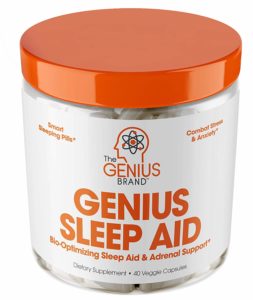Melatonin is a commonly taken supplement that is used to improve sleep and promote healthy circadian rhythms. Due to the many benefits of improved sleep, melatonin can be linked to improvements in testosterone levels, improvements in appetite, and reductions in body fat.
There are two forms of melatonin supplement available, a natural and a synthetic version. The natural form of melatonin is extracted from the pineal gland of animals while the synthetic version is made in a lab (1).
Best Melatonin
1. Sleep Support Plus
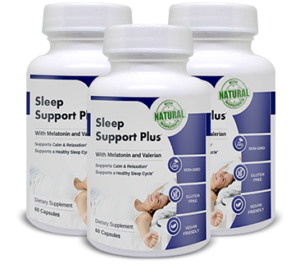
Sleep Support Plus is a specially formulated sleep support supplement, with minerals, vitamins, and a proprietary blend of modern and traditional extracts. It’s made in the US within an FDA registered facility that follows GMP guidelines. Ingredients in the formula are both domestic and imported.
It is one of the cleanest products on the market offering the powerful benefits of melatonin and supporting agent so that you can get het quality sleep you deserve. For these reasons, it’s our #1 pick.
2. Battle Ready Fuel Sleep Aid
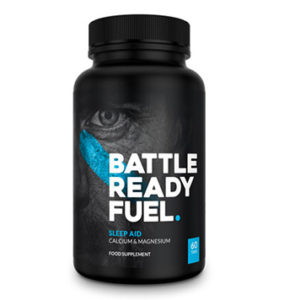
Sleep Aid is a quality blend of three key natural ingredients which active bodies need for sleep. One serving (two tablets) gives you 800mg calcium, 300mg magnesium, and 5mcg vitamin D. The three ingredients in Sleep Aid work together to help your mind unwind, and your body rest well.
This all-natural sleep supplement helps combat deficiencies and encourage an incredible level of restorative sleep.
3. Performance Lab Sleep
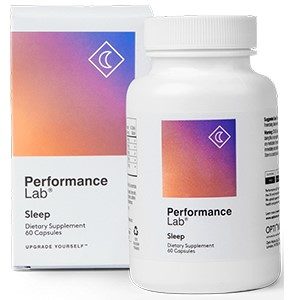
Performance Lab Sleep is Safe, non-habit-forming nightly regeneration support for peak daytime performance.
It contains natural melatonin from premium Montmorency tart cherry and L-Tryptophan by Ajinomoto.
4. Legion Athletics Lunar
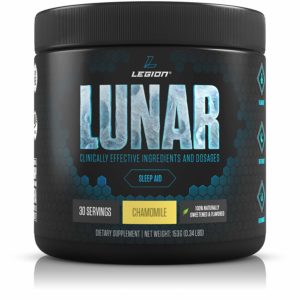
Lunar is a 100% natural sleep supplement and all ingredients are based on published scientific research. It includes scientifically backed ingredients such as melatonin and rutaecarpine.
5. Genius Sleep Aid
Genius Sleep Aid is an innovative formula with only half a milligram of melatonin. It is supported with effective doses of L- theanine, Glycine, & Inositol in this multi-benefit sleep supplement.
Genius Sleep also provides adrenal support with the caffeine eliminating ingredient, rutaecarpine.
6. Thorne Melaton-3
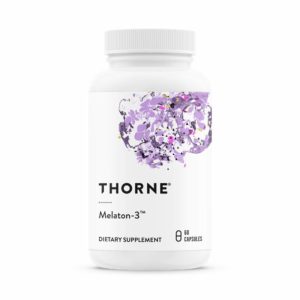
Melaton-3 is a very simple formula, ideal for those individuals requiring a moderate amount of melatonin. Melaton-3 also helps reduce the time it takes to fall asleep in people with delayed sleep-phase syndrome.
7. Carlyle Fast Dissolve Melatonin
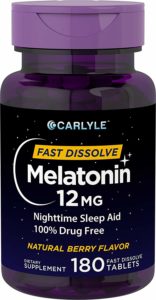
Carlyle Melatonin is a Non-GMO Gluten Free supplement that supports better rest and more relaxation. Their fast dissolve tablets contain 12 mg of melatonin which can be a great alternative to other habit forming sleep supplements.
Carlyle max potency melatonin can help relieve occasional sleeplessness from jet lag.
8. Nature’s Bounty Triple Strength Melatonin
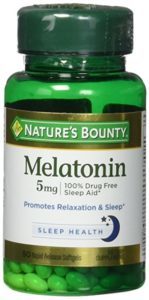
The delicious Nature’s Bounty Sleep Gummies are a tasty way to promote a relaxed mood and restful sleep.
Each tropical punch-flavored serving contains 3 mg of melatonin and 200 mg of L-Theanine.
9. Solimo Melatonin
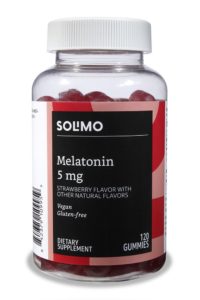
Solimo melatonin is a soft, pectin-based melatonin gummies in strawberry flavor. Each bottle contains 120 gummies and is vegan and gluten free.
10. Now Foods Melatonin
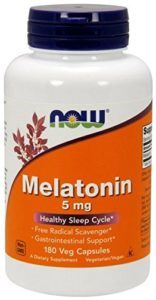
Now provides a simple formula purists will love, just 5mg of melatonin with minimal fillers. It is a little bit of a high dose which makes it less than ideal for women and smaller men.
How We Rank
When analyzing the market, we look at a few things to determine which melatonin supplements would make it and which wouldn’t. The first we thing we look at as melatonin dosing. The clinically effective dosage of melatonin is between 0.5mg and 5mg.
We preferred products like Legion Athletics Lunar, for their minimal use of melatonin because research shows that the benefits of melatonin aren’t dosed dependent. That is, taking more will not help you fall asleep faster. Higher doses like those found in Carlyle, could have negative effects so it was ranked lower.
The second thing we looked at was supporting ingredients. This includes items like valerian root, magnesium, or zinc to promote relaxation and support deep sleep. We had a preference for products like Genius Sleep Aid and Battle Ready Fuel who used many supporting ingredients, without overwhelming the melatonin content or effectiveness.
Lastly, we looked at the dosing technique. Most of our list is capsule or tablet based, and there’s a reason. While liquids are easier to swallow (especially for children and older adults), capsules are preferred for one simple reason: more accurate dosing.
After all that, we determined the top 10 best melatonin supplements on the market today.
Benefits
1. Melatonin can help improve sleep quality and combat sleep disorders. The number one reason why people take melatonin is to improve their sleep. Whether they are suffering from chronic insomnia, or just a simple case of jet lag, melatonin can help.
A 1990 study looked at the effect of melatonin on sleep (2).
The study found that sleep latency (how long it takes to fall asleep) dropped significantly when melatonin was taken. A similar study in 1994 also found a reduction in sleep latency when taking melatonin supplements (3).
It studied the effects of low doses of melatonin, between 0.1-10 mg on different parameters such as mood, sleep latency and duration, performance, changes in serum melatonin, and oral temperature in 20 healthy males. All doses of melatonin in the study increased sleep duration, sleepiness, and fatigue.
A 1995 study in the European Journal of Pharmacology found that melatonin supplementation improved evening napping and reduced sleep latency (4).
When the body sleeps, the core body temperature lower by one or two degrees. This is why we bundle up with blankets while we’re sleeping. Melatonin facilitating this helps the body to fall asleep and to stay asleep. A study in the Journal of Sleep Research found that taking melatonin supplementation could improve sleep by reducing core body temperature (5).
Or it would be more accurate to say that they found that melatonin supplementation reduced core body temperature while sleeping, and that sleep quality improved, meaning that the two could be related.
They concluded that melatonin supplementation “may be useful in treating sleep disorders associated with increased nocturnal tc” (tc stands for core temperature).
One of the most common sleep disorders is jet lag. It occurs when people travel through time zones and have to change their schedule to reflect this. Travelling like this can lead to a disruption of the body’s circadian rhythms. A Cochrane Database System Review in 2002 looked at whether melatonin supplementation could help treat the symptoms of jet lag (6).
The study reviewed ten trials and came to the conclusion that “Melatonin is remarkably effective in preventing or reducing jet-lag, and occasional short-term use appears to be safe. It should be recommended to adult travellers flying across five or more time zones”.
People who suffer from tinnitus can also struggle to fall asleep. A 2011 study titled “Melatonin: Can it stop the ringing?” looked at whether supplementing with melatonin could improve sleep quality in tinnitus sufferers (7).
61 subjects with chronic tinnitus were either given 3mg of melatonin per day or a placebo for a period of 30 days. They then swapped groups for another 30 days. The study found that melatonin was “associated with a statistically significant decrease in tinnitus intensity and improved sleep quality in patients with chronic tinnitus”. So not only can melatonin help improve tinnitus, but it can also improve sleep for people with chronic tinnitus.
For sleep disorders, it’s recommended to take melatonin for a week or two. It won’t work for everyone, and this time frame gives you an idea of whether or not it will be efficient for you. You can safely take it for about one to two months. After that period of time, stop taking it and see how sleep is doing. For sleep problems that last longer than that, you should speak to a physician.
2. Melatonin can help increase growth hormone production. Growth hormone is a peptide hormone which is secreted in the pituitary gland. The function of growth hormone is anabolic, and as such it is highly prized among athletes and bodybuilders (8).
In fact, growth hormone is one of the most commonly taken performance enhancers among athletes looking to cheat their way to better performances.
But naturally stimulating growth hormone levels is an excellent idea. There are many benefits from a performance point of view, as well as health and body composition. Quite a few studies have found that taking melatonin can increase growth hormone production.
A 1999 study in Clinical Endocrinology found that taking melatonin before bed led to a significant increase in growth hormone release the next day (9).
At 0.5 mg there was a big increase in hgh levels in the men. At about 5 mg, it was shown to be inhibitory.
A similar study in the Journal of the International Society of Sports Nutrition looked at whether combining resistance exercise and melatonin would lead to an increase in growth hormone secretion (10).
It was shown that a single dose of melatonin would increase the levels of growth hormone in the body after exercise.
The study found that when males combine exercise and melatonin supplementation (5.0mg) there is a significant increase in growth hormone secretion. The change was not noticed in females. A 1999 study also found that melatonin enhanced the effect of exercise on growth hormone secretion (11).
Not all studies noticed an effect though. A 1998 study failed to find a difference in growth hormone secretions after taking 5mg of melatonin (12).
3. Melatonin may reduce symptoms of heartburn. A 2010 study looked at the “potential therapeutic effect of melatonin in Gastro-Esophageal reflux disease” (13).
36 people were placed into four groups of nine. A control group, a group with reflux disease who were given melatonin, a group with reflux disease who were given omeprazole (a common drug given for heartburn), and a group with reflux disease who were given a combination of both.
Omezaprazole alone was found to be more effective than melatonin, but a combination of both was found to be most effective at treating heartburn. It does this by strengthening the lower esophageal sphincter.
4. Melatonin supplementation may increase blood flow. A study in the American Journal of Cardiology (1999) found that 1mg of melatonin was able to slightly increase blood flow (14).
This could have many practical applications, potentially in hypertrophy – where increased blood flow can help deliver nutrients to the muscles and improve muscle protein synthesis.
5. Melatonin may reduce blood pressure. While there is evidence that melatonin can increase blood flow, there also appears to be evidence that it can reduce blood pressure. The same study that found an increase in blood flow, also found a reduction in blood pressure in men. A 1998 study in the American Journal of Physiology found that melatonin supplementation reduced blood pressure in women (15).
6. Melatonin mixed with exercise can reduce triglycerides. A 2012 study looked at the effect of melatonin and intense exercise on football players (16).
Sixteen male footballers were split into a control group (placebo and intense exercise) and a group who took 6mg of melatonin combined with intense exercise. While both groups saw a drop in triglycerides, the melatonin group saw significantly lower levels post-exercise.
It appears that melatonin alone is not enough to see a difference though. A 2011 article in the Journal of Pineal Research did not see a difference in triglyceride levels when it compared people with MS who were given melatonin and healthy people who weren’t (17).
7. Melatonin may reduce inflammation, muscle damage, and oxidative stress. When you exercise at a high intensity, a number of beneficial events occur (which is why we do it). But there are some negative effects too. Three of these negative effects are inflammation, muscle damage, and oxidative stress. To be completely accurate, there are benefits to inflammation and muscle damage as well, but too much inflammation can cause issues.
Without inflammation and muscle damage, there could be no muscle hypertrophy. But too much inflammation and muscle damage can inhibit recovery and prevent you from training properly over the next few days. A 2011 found that taking melatonin before exercise led to a reduction in oxidative stress and inflammation, and a reduction in muscle damage (18).
8. Melatonin may reduce Cortisol. This next benefit is debatable, some studies have found that melatonin can increase Cortisol production during the day, while other studies have found that Cortisol can be lowered if melatonin is taken at night (19, 20).
Cortisol is often seen as a bad thing, particularly chronically high cortisol levels. But when cortisol is within normal parameters it can be beneficial. It can help manage blood pressure, and reduce inflammation. High levels of cortisol should be reduced, and melatonin before bed may help in that regard.
9. Melatonin may improve memory while stressed. When we are stressed, our memory can be negatively affected. A study in Psychopharmacology by Rimmele et al(2009) found that a single oral dose of 3mg melatonin led to “enhanced recognition memory accuracy of objects encoded under stress” (21).
Their theory as to why this would be the case was that melatonin can dampen hormonal responses to stress.
10. Melatonin supplementation can increase Leptin and lower appetite. Leptin is a hormone that is produced in adipose (fat) cells, its main function is to reduce appetite and prevent overeating. The main goal of Leptin is to achieve homeostasis (energy balance). Melatonin may have an effect on Leptin production.
A 2013 study looked at the effect of melatonin in non-alcoholics who were suffering from fatty liver (22). The study found that melatonin supplementation led to an increase in Leptin secretion. This, and studies like it have led scientists to theorise that melatonin supplementation can actually lead to weight loss. A study on rats who had had the pineal gland removed found that even with exercise they stopped losing weight, and actually gained body fat (23).
The pineal gland is where melatonin is produced, this could indicate that melatonin has an important role in fat loss, or at least weight management. Improved sleep has often been linked to weight loss due to the effect that it has on leptin and ghrelin (the “hunger” hormone).
A 2004 study looked at the effect of bad sleep on leptin and ghrelin, it found that limited sleep led to a reduction in leptin and an increase in Ghrelin (24).
This would lead to increased hunger between meals, and a reduced feeling of satiety after eating – which could obviously lead to overeating and therefore weight gain.
11. Melatonin may help reduce stomach ulcers. Stomach ulcers occur when your stomach lining becomes damaged due to the layer protecting it from stomach acid breaks down (25).
This can be caused by infection or through taking too much aspirin or anti-inflammatory drugs. Melatonin supplementation appears to reduce the risk of stomach ulcers occurring (26).
Studies have found that melatonin can accelerate the healing of stomach ulcers, whether they are caused by anti-inflammatory drugs or from Helicobacter pylori infection (27, 28).
It seems that Melatonin is excellent protection and treatment against stomach ulcers.
12. Melatonin can help inhibit growth of cancer cells. There is potential for melatonin to be helpful for a variety of cancers, such as prostate cancer, breast cancer, colorectal cancer, and gastric cancer. Some studies show that there is an inverse association between breast cancer incidence and circadian melatonin levels. A case-control study found that female subjects who had serum melatonin levels of ≤ 39.5 had a significantly higher risk of breast cancer, about 15 times more, than subjects with levels greater than 39.5 pg/mL.
In vitro, melatonin is shown to decrease the proliferation rates of cancer cells (29).
It inhibited the invasiveness and viability of breast cancer mammospheres. Melatonin has a natural anti-angiogenic molecule and can control tumor growth. Melatonin treatments were reported to have an anti-cancer effect by influencing DNA methylation patterns, by turning down and regulating oncogenic genes (EGR3 and POU4F2/Brn-3b) and activating and turning up the tumor suppressor gene (GPC3).
Long term use of melatonin suppresses tumors and migration of the cancer cells by downregulating miR-24. Treating MCF-7 cells with melatonin leads to significant growth inhibition.
In rat studies, tumor rates were decreased by 69% (30).
Among women with ovarian cancer, serum levels of melatonin were lower with those who had cancer in comparison to women who didn’t have it.
Similar findings with men and other types of cancer were found. A case study showed that men who had first-morning urine levels of melatonin below the median had a four times higher risk of prostate cancer compared with men who had levels above the median. Analogously, it was found that men with higher levels of melatonin were less likely to have prostate cancer or advanced stages of prostate cancer.
In prostate cancers, melatonin had anti-proliferative effective on prostate cancer cell lines. Literature supports melatonin for the treatment and prevention of prostate cancer.
13. Melatonin may help with depression and anxiety A study comparing placebo use with melatonin treatment with winter depression showed positive results (31).
Research done at Oregon Health and Science University showed that melatonin helped with winter depression as well. It’s shown that it promotes a sense of quiet wakefulness.
The team administered melatonin in the afternoon, which had positive results for night owls. Morning people benefited from taking it in the mornings (32).
It’s also shown to work synergistically with anti-anxiety medications to help treat anxiety. In other studies, it can reverse the effects of anxiety (33).
In adults undergoing surgery, it’s used as a pre and post-operative alternative to benzodiazepines for anxiety. In a placebo study, it was shown to be just as effective as standard treatment (34).
Low melatonin levels are associated with depression. Adding melatonin to a supplement routine can improve sense of well being and improve sleep, which will help with feelings of depression.
14. Melatonin may help treat irritable bowel syndrome (IBS). Melatonin is shown to have multiple anti-inflammatory and anti-oxidant effects. In eight clinical trials, it had anxiolytic, anti oxidative, anti-inflammatory and motility regulatory effects of melatonin on the GI tract (35).
In mice with colitis, melatonin was shown to decrease the microbiota of mice with colitis (36).
The best results were found in patients who received melatonin in addition to the standard treatment. This group achieved remission earlier, as well as significant evidence of mucosal healing (37).
15. Melatonin may help with osteoporosis. Melatonin levels are shown to be lower in those who have osteoporosis. In peri-menopausal women, supplementing with melatonin can lower the risk of hip fracture. The melatonin works through melatonin receptors to form osteoblasts from human mesenchymal stem cells. It inhibits osteoclast activity in rodents.
Melatonin helps to promote osteogenesis and inhibits the receptor activator of NF-kB lingang. This suppresses osteolysis (38).
A recent study showed that introducing melatonin as well as nutritional supplements helped to prevent and treat osteoporosis (39).
Daily doses of melatonin reduce ovariectomy-induced structural and functional degeneration of bone, promotes bone formation, and increases bone accrual (40).
It prevents bone degradation and promotes bone formation. It works primarily by promoting osteoblast activity and differentiation, inhibits differentiation of osteoclasts, and helps neutralize free radicals to resist osteoporosis. Melatonin also will reduce bone resorption and helps protect against osteoporosis.
16. Melatonin may play an important role in the treatment of glaucoma. Small amounts of melatonin are shown to be effective in treating glaucoma symptoms in men. 0.5 grams can lower intraocular pressure. In studies on animals, topical melatonin can reduce intraocular pressure by 19-28%. This is comparable to most prescription glaucoma medicines. Its antioxidant activity can help to protect the optic nerve (41).
17. Melatonin can help improve fertility. In many studies and research applications, melatonin is shown to be an effective antioxidant. For women, this helps with their fertility among many other things.
When women are undergoing IVF, it’s shown to help the eggs mature. In the body, melatonin is highest in women’s eggs than anywhere else (42).
With mice, it is shown to help mice continue to have babies to 15 months, which is the equivalent to 34-58 in human years (43).
Overall, it helps with antioxidant activity and with the permeability of the membranes.
18. Melatonin may help in treating Alzheimer’s disease. The antioxidant effects of melatonin can have neuroprotective effects in individuals with dementia or Alzheimer’s. Many Alzheimer’s patients have difficulty with sleeping. Melatonin helps to reduce instances of “sundowning.” 7 out of 10 patients with Alzheimer’s were effectively treated with melatonin and sundowning behaviors were reduced.
Sleeping and cognitive as well as behavioral patterns were reduced (44).
Compared to individuals of similar age, Alzheimer’s patients have lower melatonin levels. It benefits Alzheimer’s patients by helping to promote phases of restorative sleep (45).
In studies, it’s shown to prevent the neurodegeneration that is typical of AD. For these purposes, patients were administered doses about twice as much as is required for sleep.
Melatonin is shown to be effective in treating delirium and other cognitive impairments typical of dementia. Patients with delirium were shown to have lower melatonin levels. Treating them with melatonin was shown to be effective even when they were not responsive to antipsychotics or benzodiazepines (46).
Side Effects
There does not appear to be any side effects to taking melatonin whatsoever. Doses that are ten times higher than the recommended dosage have been shown to have no toxicity issues (47 , 48).
There does not appear to be any form of tolerance when taken for long periods of time, nor are there any withdrawal issues.
There have been reports of headaches, dizziness, but not enough to be conclusive.
Recommended Dosage
According to examine.com the recommended dosage for melatonin starts at 0.5mg but you can increase this to between 3-5mg (49).
It should be taken around 30 minutes before bed.
FAQ
Is melatonin safe? Yes, melatonin is perfectly safe. It is a naturally occurring molecule in the body that helps regulate circadian rhythms.
Are there foods that contain melatonin? Some foods naturally contain melatonin and are therefore great to have at an evening meal or as a light night time snack. These include: bananas, morello cherries, rice, ginger and barley.
Can you take melatonin during the day to reduce anxiety? It’s not recommended as melatonin can cause you to be drowsy.
Can melatonin help you lose weight? Indirectly, yes. Melatonin can help balance your hormones and your circadian rhythm which can lead to more weight loss.
Can you get melatonin naturally? Yes you can. The best ways are to get sun exposure, meditate and reduce stress levels. You can also eat foods rich in melatonin (see above).
What are the benefits of naturally high melatonin levels? There appear to be many benefits to melatonin supplementation, but more than that there are benefits to naturally high melatonin levels. Most of the benefits we have mentioned are only noticeable in people with lower than average melatonin levels.
Trying to sleep better through regular bed times, avoiding electronic light sources prior to bed, and regular exercise would make a big difference to your sleep and melatonin levels. However, if you are suffering from sleep disorders – particularly ones that are affected by issues such as jet lag, tinnitus, or stress, then melatonin supplementation could be a very effective treatment.
Can melatonin cause weird dreams? Since melatonin causes more REM sleep, it is possible that you can have weird dreams. You dream in the REM state, so more REM means more dreams. More dreams means a higher chance of weird dreams.
Can I naturally produce more melatonin? Yes you can. Avoiding any light at night (except candle light) seems to be the best way to boost melatonin production.
How long have melatonin supplements been available? It was first isolated from the bovine pineal gland in 1958. They have been available since 1990.
How common is melatonin for sleep? In 2012, more than 3 million Americans used melatonin for sleep, according to a survey from Centers from Disease Control and Prevention.
What is the body’s natural melatonin production? The body naturally produces melatonin. About two hours before bedtime, the body’s natural production increases.
When is it recommended to take melatonin for sleep? Melatonin for sleep is recommended if you have difficulty sleeping for two or more nights.
How much melatonin is recommended? Less is more when it comes to melatonin. It’s recommended to supplement with 1 to 3 milligrams.
What are the precautions to taking melatonin for sleep? Those with certain conditions should be cautious when supplementing with melatonin. Do not use it if you’re breastfeeding or pregnant. Other conditions where you should not take melatonin include a seizure disorder, depression, or an autoimmune disorder.
Where is the process of melatonin regulated? It is regulated in part by the “master biological clock” in the hypothalamus.
How much sunlight is recommended to help boost melatonin activity? It’s recommended that people have up to 2 hours of sunlight a day to naturally improve the production of melatonin in the body.
What is melatonin’s effects on asthma? There is some evidence that suggests that melatonin can worsen symptoms of asthma. If you have asthma, then have caution when starting a melatonin routine. More than 17 million Americans have asthma. It was found that adding melatonin to the cells of people with asthma increasing how many inflammatory chemicals were released, especially at night.
What is the chemical composition of melatonin? The chemical composition of melatonin is C13H16N2O2. Chemically, it is known as N-acetyl-5-methoxytryptamine.
Does melatonin help with insomnia? Insomnia is an awful condition that can have many far-reaching issues. Increased cortisol, increased body fat accumulation, increased risk of mortality, and a reduction in cognitive function are all associated with poor sleep. Many of the drugs prescribed for insomnia have side effects and while they are often more effective, they may not suit everyone. Melatonin seems like a very safe, and effective drug to combat insomnia.
Where does the word melatonin come from? It derives from the Greek “melos,” which means “dark.” This hormone is created during the nocturnal cycle.
Is melatonin good for bodybuilders? If you are a bodybuilder or a regular gym goer, melatonin supplementation may have some additional benefits. The increase in blood flow, reduction in muscle damage, reduction in inflammation, and spike in growth hormone secretion can all help with recovery from exercise, improved hypertrophy, and improved strength gains. Improved sleep is also crucial to recovery, this is why many athletes sleep much more than sedentary people (32).
Recap
Melatonin is an effective supplement that helps improve sleep duration and quality. It also helps to improve cortisol. Regulation of cortisol could also be beneficial, particularly if the athlete in question is also stressed or anxious. While melatonin does not appear to have much of an effect on anxiety, improving your sleep quality can help indirectly reduce anxiety.
For Healthtrends #1 melatonin recommendation, click here.

